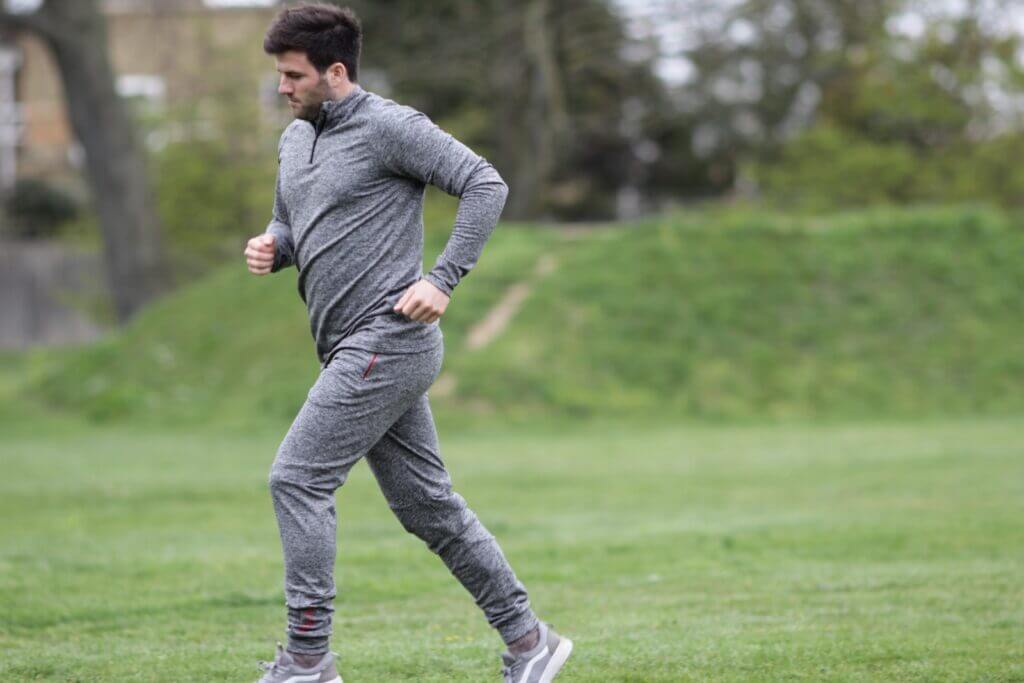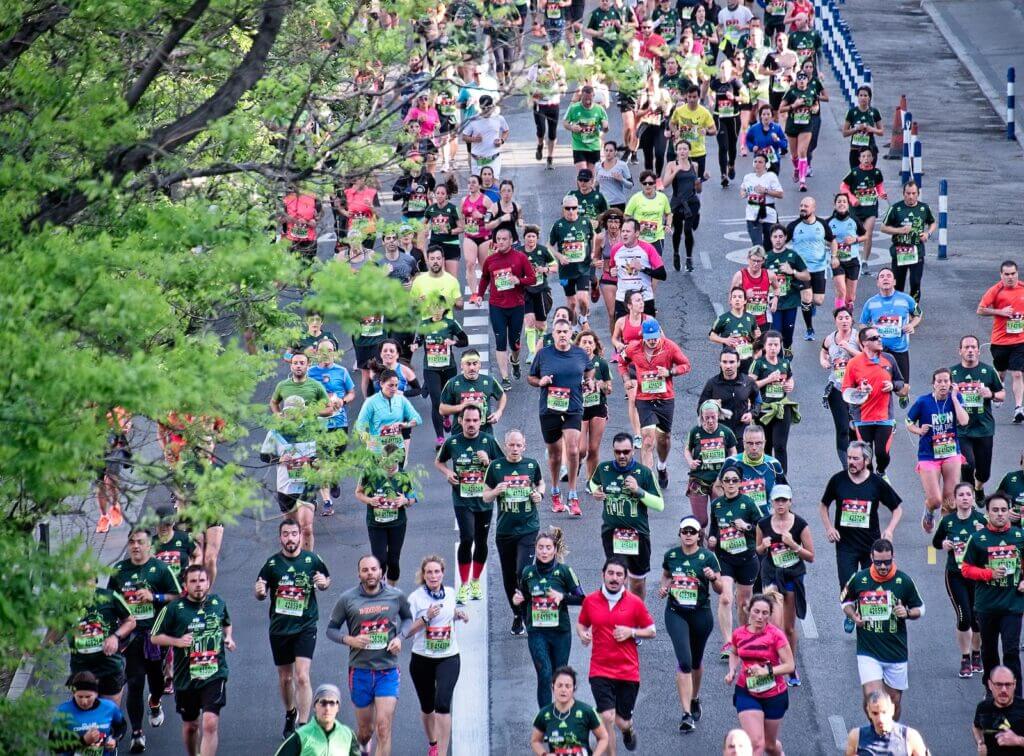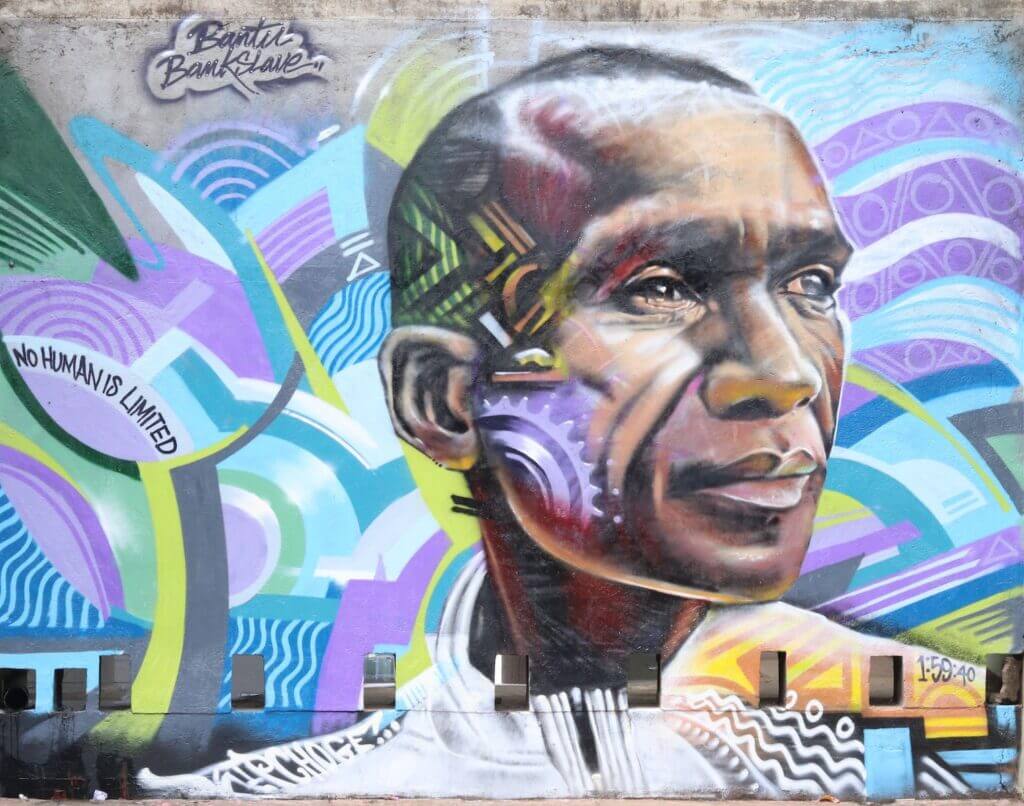Are you curious about how your running speed compares to the average human? Have you ever wondered what determines an impressive average running speed? Well, you’re in the right place! In this blog post, we’ll delve into the fascinating world of average running speed and unravel its secrets.
So, what exactly is the average running speed of a human? On average, most adults can maintain a speed of about 5 to 7 miles per hour (8 to 11 kilometers per hour) during a moderate-paced run.
But don’t worry if you’re not there yet—we’ll explore various factors that can influence your running speed and provide tips to help you improve. Get ready to lace up your running shoes and discover your potential as we dive into the world of average running speed!
Table of Contents
What is the average running speed?

Average Speed for Male Runners
On average, male runners tend to have a faster running speed compared to female runners. According to various studies and race data, the average running speed for men is around 9-10 minutes per mile (about 6-7 minutes per kilometer) for a steady, moderate-paced run. However, it’s important to note that this can vary depending on factors such as age, fitness level, and training regimen.
Average Speed for Female Runners
For female runners, the average running speed is slightly lower than that of male runners. On average, women tend to run at a pace of approximately 10-11 minutes per mile (around 7-8 minutes per kilometer) for a steady, moderate-paced run. Just like with male runners, individual factors can influence this average, but this provides a general idea.
Average running speed on a treadmill
When it comes to running on a treadmill, average speeds can differ slightly. This is because running on a treadmill offers a more controlled environment, which can lead to more consistent pacing. On average, people tend to run a bit faster on a treadmill compared to outdoor running. For instance, a common average speed on a treadmill is about 6.5-7.5 miles per hour (approximately 10-12 kilometers per hour) for a steady, moderate-paced run.
Understanding average running speed can be helpful in gauging your performance and tracking improvements over time. However, remember that running is a highly individualized activity, and there’s no one-size-fits-all speed. What truly matters is enjoying the process, staying consistent with your training, and pushing yourself to reach your own personal best.
Read: How To Run A Faster Mile?
Factors of Average Running Speed

When it comes to average running speed, there are several factors that can influence how fast or slow you run. Let’s take a closer look at these factors and understand how they impact your overall running performance.
1. Physical Fitness and Genetics
Your physical fitness level and genetic makeup play a significant role in determining your average running speed. Factors such as muscle strength, body composition, cardiovascular fitness, and lung capacity can all affect how fast you can run.
For example, let’s consider two individuals, John and Sarah. John has been regularly training for months, working on improving his endurance and strength. On the other hand, Sarah is new to running and hasn’t focused much on physical fitness. It’s likely that John, with his higher fitness level, will have a faster average running speed compared to Sarah.
2. Training Consistency and Frequency
Consistency and frequency of training are crucial for improving your average running speed. Regular training helps your body adapt and become more efficient at running. If you consistently run and train at a specific pace, your body will gradually become accustomed to that speed, resulting in an improvement in your average running speed over time.
Let’s say you have two runners, Lisa and Mike. Lisa runs three times a week, consistently maintaining her training schedule. On the other hand, Mike only runs sporadically, sometimes skipping weeks between runs. It’s highly likely that Lisa, due to her consistent training, will have a higher average running speed compared to Mike.
3. Training Intensity and Type
The intensity and type of training you engage in can also impact your average running speed. Different types of workouts, such as interval training and speed workouts, can help you improve your speed and running efficiency.
For instance, incorporating interval training into your routine involves alternating between high-intensity bursts of running and recovery periods. This type of training helps improve your anaerobic capacity, which can ultimately lead to a faster average running speed.
4. Environmental Factors
Environmental factors, such as terrain and weather conditions, can affect your average running speed. Running on a flat surface, such as a track, can allow you to maintain a faster pace compared to running uphill or on uneven terrain. Additionally, running against strong headwinds or in extreme heat or cold can impact your speed.
Imagine running on a windy day versus a calm day. On a windy day, with gusts of wind pushing against you, it becomes more challenging to maintain your average running speed. Therefore, it’s important to take into account these environmental factors when assessing your performance.
By understanding these factors that influence your average running speed, you can make informed decisions about your training and work on improving specific areas. Remember, it’s a combination of factors, including physical fitness, training consistency, intensity, and environmental conditions, that contribute to your overall average running speed.
Training Speed Vs Average Speed

When it comes to running, there is often confusion between training speed and average speed. So, let’s break it down and understand the difference.
Training Speed: Your training speed refers to the pace at which you run during your workouts or training sessions. This can vary depending on the type of workout you’re doing. For example, if you’re doing a speed workout or interval training, you might be running at a faster pace than if you’re doing a long, slow distance run.
Average Speed: On the other hand, your average speed is the overall pace you maintain over a certain distance or time. It takes into account both your faster and slower running speeds throughout the entire run.
To better understand this concept, let’s consider an example. Imagine you’re training for a 10-kilometer race. During your training, you might have different workouts that focus on different aspects of running. In one workout, you might do interval training where you run at a faster pace for short bursts, such as running at 8 minutes per mile (or 5 minutes per kilometer). In another workout, you might do a long, slow distance run at a pace of 10 minutes per mile (or 6 minutes per kilometer).
Now, when it comes to the actual race day, your average speed will be a combination of the different paces you’ve trained at. Let’s say during the 10-kilometer race, you finish in 55 minutes. Your average speed for the race would be calculated by dividing the total distance (10 kilometers) by the total time (55 minutes), which gives you an average speed of 5.45 minutes per kilometer.
It’s important to note that your training speed and average speed are not always the same. During training, you might push yourself to run faster in certain workouts to improve your speed and endurance. However, during a race or any other run, you’ll have fluctuations in your pace due to factors like fatigue and terrain, which will affect your average speed.
So, the next time you’re analyzing your running data, make sure to distinguish between your training speed and average speed. It’s all part of the fascinating world of running and the various factors that contribute to your overall performance.
Read: Average 3 mile run time by age
Average Running Speed by Age

When it comes to running, age can play a role in determining average running speed. As we grow older, our bodies go through natural changes that can affect our running abilities. However, it’s important to remember that everyone is unique, and individual factors such as fitness level and training play a significant role as well. Let’s take a closer look at how average running speed may vary across different age groups.
1. Average Running Speed for Children (Ages 8-12)
Children have bundles of energy and can often run with incredible speed. On average, children between the ages of 8 and 12 can maintain a running speed of around 7-9 minutes per mile. That means they can cover approximately 1 mile in 7-9 minutes. Keep in mind that some children may be faster or slower depending on their physical development and regular physical activity.
2. Average Running Speed for Teens (Ages 13-19)
During the teenage years, there can be a wider range of running abilities depending on individual factors like fitness and training. On average, teenage runners can complete a mile in about 6-8 minutes. Again, this is just an average, and there will be some teens who can run faster or slower.
3. Average Running Speed for Adults (Ages 20-39)
In adulthood, running speed can vary widely depending on factors such as fitness level, training, and overall health. However, for most adults in their 20s and 30s, maintaining a pace of around 8-10 minutes per mile is considered a reasonable average. This translates to completing a mile in approximately 8-10 minutes. Of course, some adults may be faster or slower based on their individual circumstances.
4. Average Running Speed for Middle-aged Adults (Ages 40-59)
As we enter middle age, our running speed may start to decline slightly due to the natural aging process. On average, middle-aged adults tend to run at a pace of about 9-11 minutes per mile, completing a mile in around 9-11 minutes. It’s important to note that maintaining regular exercise and staying physically active can help slow down this decline.
5. Average Running Speed for Older Adults (60+)
As we reach our senior years, our running speed may continue to decrease due to the effects of aging. However, staying active and engaging in regular exercise can still contribute to maintaining a good level of fitness. On average, older adults may run at a pace of around 10-12 minutes per mile, completing a mile in approximately 10-12 minutes.
It’s worth mentioning that these average running speeds are just general guidelines and can vary from person to person. Some individuals may surpass these averages, while others may fall slightly below. The most important thing is to focus on personal progress, set realistic goals, and enjoy the process of running.
Read: Average 2 mile run time by age
Average Race Times Including Marathons

When it comes to measuring running speed, races provide a great way to gauge how fast runners can cover a specific distance. Whether it’s a 5K, 10K, half marathon, or the mighty marathon, race times can give us an idea of average running speeds. So, let’s dive into the average race times, including marathons, and see how runners fare across different distances.
5K Race Times
The 5K race is a popular choice for both beginners and seasoned runners. It covers a distance of 3.1 miles (or approximately 5 kilometers). In general, a good average time for a 5K race is around 25 to 30 minutes. However, it’s important to remember that everyone’s fitness level and running experience can vary.
Some runners might finish a 5K in under 20 minutes, while others may take closer to 40 minutes. It all depends on individual factors such as training, genetics, and dedication.
10K Race Times
Moving up to the 10K distance, which is about 6.2 miles, the average race times naturally take longer. A solid average time for a 10K race is around 50 to 60 minutes. Again, this can vary based on personal fitness and training.
Some experienced runners can finish a 10K in under 40 minutes, while others might take over an hour. It’s essential to set realistic goals and focus on personal progress rather than comparing yourself to others.
Read: How many miles is a 10k?
Half Marathon Race Times
The half marathon, a challenging 13.1-mile race, requires more endurance and stamina. The average time to complete a half marathon is generally between 1 hour 45 minutes to 2 hours for recreational runners.
Elite runners can finish it in under 1 hour 15 minutes, showcasing their incredible speed and endurance. It’s important to note that finishing times can vary significantly depending on factors like terrain, weather conditions, and personal fitness level.
Marathon Race Times
The marathon, the granddaddy of all races, covers a whopping 26.2 miles. Completing a marathon is a remarkable accomplishment, regardless of the time it takes. Average marathon times can range from 4 to 5 hours for recreational runners.
Elite runners can finish a marathon in around 2 hours 10 minutes to 2 hours 30 minutes, which is incredibly fast. It’s important to remember that the marathon is a demanding distance that requires months of dedicated training and preparation.
Understanding the Numbers
While these average race times can provide a rough guideline, it’s crucial to keep in mind that individual results may vary significantly. The numbers presented here are just averages, and many factors can influence a runner’s performance.
Factors like age, training consistency, previous running experience, and natural ability all play a role in determining race times. The most important thing is to focus on your personal progress and enjoy the journey rather than getting caught up in comparing yourself to others.
The Fastest Runners in the World

When it comes to speed, there are some incredible athletes who have pushed the limits of human performance and achieved astonishing running speeds. In this section, we’ll take a closer look at the fastest runners in the world and their mind-blowing achievements.
World Record Holders
The world records in running are a testament to the exceptional speed and athleticism of these extraordinary individuals. Let’s explore some of the current world record holders in various running events:
- Usain Bolt – The Fastest Man on Earth
- Usain Bolt, a Jamaican sprinter, holds the world record in both the 100-meter and 200-meter sprints.
- In the 100-meter race, Bolt blazed across the finish line in a jaw-dropping 9.58 seconds, achieving an average speed of approximately 37.6 kilometers per hour (23.4 miles per hour)!
- In the 200-meter race, Bolt recorded an astonishing time of 19.19 seconds, maintaining an average speed of around 37.5 kilometers per hour (23.3 miles per hour).
- Eliud Kipchoge – The Marathon Master
- Eliud Kipchoge, a Kenyan long-distance runner, is renowned for his mastery of the marathon.
- In 2019, Kipchoge shattered the marathon world record by completing the race in an incredible 2 hours, 1 minute, and 39 seconds.
- This means that Kipchoge maintained an astonishing average speed of approximately 20.4 kilometers per hour (12.7 miles per hour) throughout the entire 42.195-kilometer (26.2-mile) distance!
Olympic Champions
The Olympic Games are the pinnacle of athletic competition, and they have witnessed some remarkable displays of speed. Here are a couple of Olympic champions known for their lightning-fast performances:
- Florence Griffith-Joyner – The Queen of Speed
- Florence Griffith-Joyner, an American sprinter, was an absolute force on the track.
- At the 1988 Olympic Games, she set world records in both the 100-meter and 200-meter sprints that still stand today.
- In the 100-meter race, she blazed to the finish line in just 10.49 seconds, achieving an average speed of around 36 kilometers per hour (22.4 miles per hour)!
- In the 200-meter race, Griffith-Joyner recorded a mind-boggling time of 21.34 seconds, maintaining an average speed of approximately 35.5 kilometers per hour (22.1 miles per hour).
- Haile Gebrselassie – The Endurance Dynamo
- Haile Gebrselassie, an Ethiopian long-distance runner, is regarded as one of the greatest distance runners of all time.
- Gebrselassie set numerous world records throughout his career, but his achievements in the 10,000-meter event are particularly noteworthy.
- In 1998, he broke the world record in the 10,000-meter race with a stunning time of 26 minutes and 22.75 seconds.
- This translates to an average speed of approximately 22.5 kilometers per hour (14 miles per hour) over the entire 10,000-meter (6.2-mile) distance!
Inspiration from Incredible Speed
These exceptional runners serve as an inspiration for athletes and running enthusiasts around the world. While reaching the speed of these world record holders may seem unattainable for most of us, their performances demonstrate what the human body is capable of with the right training, dedication, and talent.
How to Improve Your Average Running Speed

If you’re looking to improve your average running speed, you’ve come to the right place! In this section, we’ll share practical tips and techniques that can help you become a faster runner. Let’s dive right in:
- Consistent Training
Consistency is key when it comes to improving your running speed. Make sure you have a regular running schedule and stick to it. Aim for at least three to four days of running per week. By training consistently, you give your body the opportunity to adapt and become more efficient. - Interval Training
Interval training involves alternating between periods of high-intensity running and recovery. It’s an excellent way to improve your speed and endurance. For example, you can try sprinting for 30 seconds, followed by a 1-minute recovery jog. Repeat this cycle for several sets during your workout. Interval training helps increase your cardiovascular fitness and trains your body to run faster. - Tempo Runs
Tempo runs are runs performed at a comfortably hard pace, slightly below your maximum effort. These runs improve your lactate threshold, which is the point at which your body starts to produce lactic acid. By increasing your lactate threshold, you’ll be able to maintain a faster pace for longer periods. A typical tempo run could involve running at a challenging pace for 20 minutes during a 30-minute run. - Hill Training
Incorporating hill training into your workouts can significantly enhance your running speed. Running uphill strengthens your leg muscles and improves your power and speed. Find a hill with a moderate incline and include hill repeats in your training. For example, sprint up the hill for 30 seconds, then jog or walk back down for recovery. Repeat this process for several sets. - Strength Training
Don’t underestimate the importance of strength training for improving your running speed. Incorporate exercises that target your leg muscles, such as squats, lunges, and calf raises. Strengthening your muscles will provide more power and stability during your runs, allowing you to maintain a faster pace for longer distances. - Proper Form and Technique
Pay attention to your running form and technique. Keep your body relaxed, shoulders back, and maintain a slight forward lean. Land midfoot and push off with each step. Avoid overstriding, as it can slow you down and increase the risk of injury. Consider consulting with a running coach or joining a running group to get feedback on your form. - Recovery and Rest
Allowing your body proper rest and recovery is essential for improving your average running speed. Rest days are just as important as training days. They give your muscles time to repair and rebuild, which ultimately leads to better performance. Make sure you incorporate rest days into your training plan and listen to your body’s signals.
Remember, improving your average running speed takes time and patience. Don’t get discouraged if progress seems slow at first. Stay consistent, focus on your training, and celebrate the small victories along the way. With dedication and perseverance, you’ll see improvements in your running speed over time.
FAQ
What’s a Good Average Running Speed?
A good average running speed varies depending on several factors, including your fitness level, age, and running experience. For most recreational runners, a good average running speed is generally considered to be around 5 to 6 miles per hour (mph). This translates to a pace of approximately 10 to 12 minutes per mile. Remember, it’s essential to focus on your own progress and set realistic goals based on your individual capabilities.
Is 15 mph fast for a human?
Yes, 15 mph is fast for a human. Running at a speed of 15 mph requires exceptional athleticism and is usually achieved by professional sprinters. It’s important to note that reaching such high speeds requires years of dedicated training, superior genetic potential, and specialized techniques. For the average person, maintaining a pace of 15 mph for an extended period is extremely challenging.
Is 12 mph fast for a human?
Yes, 12 mph is considered fast for a human. Running at a speed of 12 mph is equivalent to running a five-minute mile, which is an impressive feat. It requires a high level of cardiovascular fitness, strength, and endurance. Achieving and sustaining this pace requires consistent training and dedication to improving your running abilities.
Is 16 mph fast for a human?
Yes, 16 mph is very fast for a human. Running at a speed of 16 mph is exceptionally rare and typically achieved by elite athletes or professional runners. This pace is close to the world record for the 100-meter dash, showcasing incredible speed and power. For the majority of individuals, reaching and maintaining a speed of 16 mph is highly challenging and requires years of intense training.
Can a human run 20 mph?
No, it is not possible for a human to run 20 mph. The fastest recorded human running speed is around 28 mph, achieved by Usain Bolt during the 2009 World Championships. However, this remarkable speed was only sustained for a short distance. Running at a consistent pace of 20 mph or higher is beyond the physical capabilities of the human body. Our anatomy and physiology simply do not allow for sustained speeds at this level.
Conclusion
In conclusion, average running speed serves as a valuable metric for runners, offering insights into performance and progress.
Understanding the factors that influence average running speed, such as genetics, training, and environmental conditions, can help individuals set realistic goals and make necessary adjustments to their training routines. While average speeds can vary among different demographics and skill levels, the key lies in consistent effort and gradual improvement.
By implementing a structured training plan, incorporating strength and cross-training, and maintaining proper nutrition and hydration, runners can work towards improving their average running speed. Remember, it’s not just about the numbers; enjoying the process and staying committed to personal growth are fundamental to long-term success on the running journey.
You might also like…


